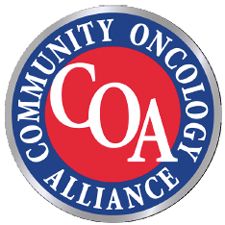2020 COA Impact Report Shows Increase in Mergers, Acquisitions for Community Practices
"Over the last 12 years, an average of 9 practices per month have closed, been acquired by a hospital, or merged. These are troubling trends and dangerous for patients battling cancer...”

The 2020 Community Oncology Alliance (COA) Practice Impact Report, released on April 24 during the Community Oncology Conference, showed a significant increase in community oncology practices merging and/or being acquired by other non-hospital practices or corporate entities, and also touched upon concerns for community practices due to the pandemic.
Since 2008, 1748 community oncology clinics and/or practices have closed, been acquired by hospitals, undergone corporate mergers, or reported financial difficulties. When broken down into separate issues, there were 435 individual clinic treatment sites that have closed; 348 practices, usually made up of multiple clinics, reported financial struggles, having a hard time paying bills, and/or staying open; and 40 practices that sent their patients on Medicare elsewhere for chemotherapy.
Furthermore, 722 practices were acquired by a hospital or entered into a contractual professional service agreement binding that practice to a hospital, though the latter was less likely; and 203 practices merged with either another community oncology practice and/or were acquired by a corporate entity.
On a state-by-state basis, the largest number of practice closures was in Florida, with 47 closures, then Texas with 44, and Michigan with 36.
There has been a 20.8% increase in practices merging with or being acquired by another community oncology practice and/or corporate entity compared to the 2018 COA Practice Impact Report. The report speculates that this is due to practices wanting protection from hospital merger pressures. There have been financial incentives for these practices in the 340B Drug Discount Program and higher payments to hospitals for cancer care services, which has been the reason for a 9.7% increase in practices being acquired by hospitals from 2018 to 2020.
“Over the last 12 years, an average of 9 practices per month have closed, been acquired by a hospital, or merged. These are troubling trends and dangerous for patients battling cancer,” Michael Diaz, MD, president of COA and director of patient advocacy at Florida Cancer Specialists & Research Institute, said in a statement.
“The COVID-19 [coronavirus disease 2019] pandemic has clearly demonstrated the important and irreplaceable role that community oncology practices play in America’s health care system,” he continued. “As hospitals have had to shift resources to focus on COVID-19, community oncology practices have remained open to treat patients. Cancer doesn’t stop and the cancer care we provide will not stop, no matter what challenges are thrown our way.”
According to the report, early data show that the pandemic will significantly impact practices that are already reporting a dramatic decrease in treatments, visits, and new patients. Although policy changes and government support are helping these practices stay open, there it uncertainty over whether hospitals will use unrestricted bailouts to drive growth after the crisis by pressuring more community oncology practices into acquisitions.
The COA Practice Impact Report tracks changes in the landscape of community cancer care in the United States through public and private data sources. The community oncology trends from national and state data are covered in a 12-year period in the 2020 report, from January 2008 to April 2020. This is the eighth report to be published by COA.
“The trends of practice closures and hospital mergers have continued at pretty much the same pace as the last Community Oncology Practice Impact Report, which shows that policymakers in Washington are still not doing enough to preserve the independent, community oncology system,” Ted Okon, executive director of COA, stated in a press release. “At the same time, we are being driven by public policy to deliver higher value and lower costs, all while not enough is being done to stop cancer care from being shifted into the much more expensive hospital setting. The shifting of cancer care to large health systems is the result of the runaway 340B program and disparate site-of-service payments that basically mint money for hospitals.”
<< For information on the 2018 COA Practice Impact Report, click here.
Reference:
2020 Community Oncology Alliance Practice Impact Report. COA website. https://communityoncology.org/2020-community-oncology-alliance-practice-impact-report/. Published April 24, 2020. Accessed April 28, 2020.
Petosemtamab and Pembrolizumab: A Promising Pair in HNSCC Treatment
July 2nd 2024In an interview, Cesar Augusto Perez, MD, delved into the findings from a phase 2 study evaluating petosemtamab plus pembrolizumab in patients with recurrent/metastatic head and neck squamous cell carcinoma.
Read More